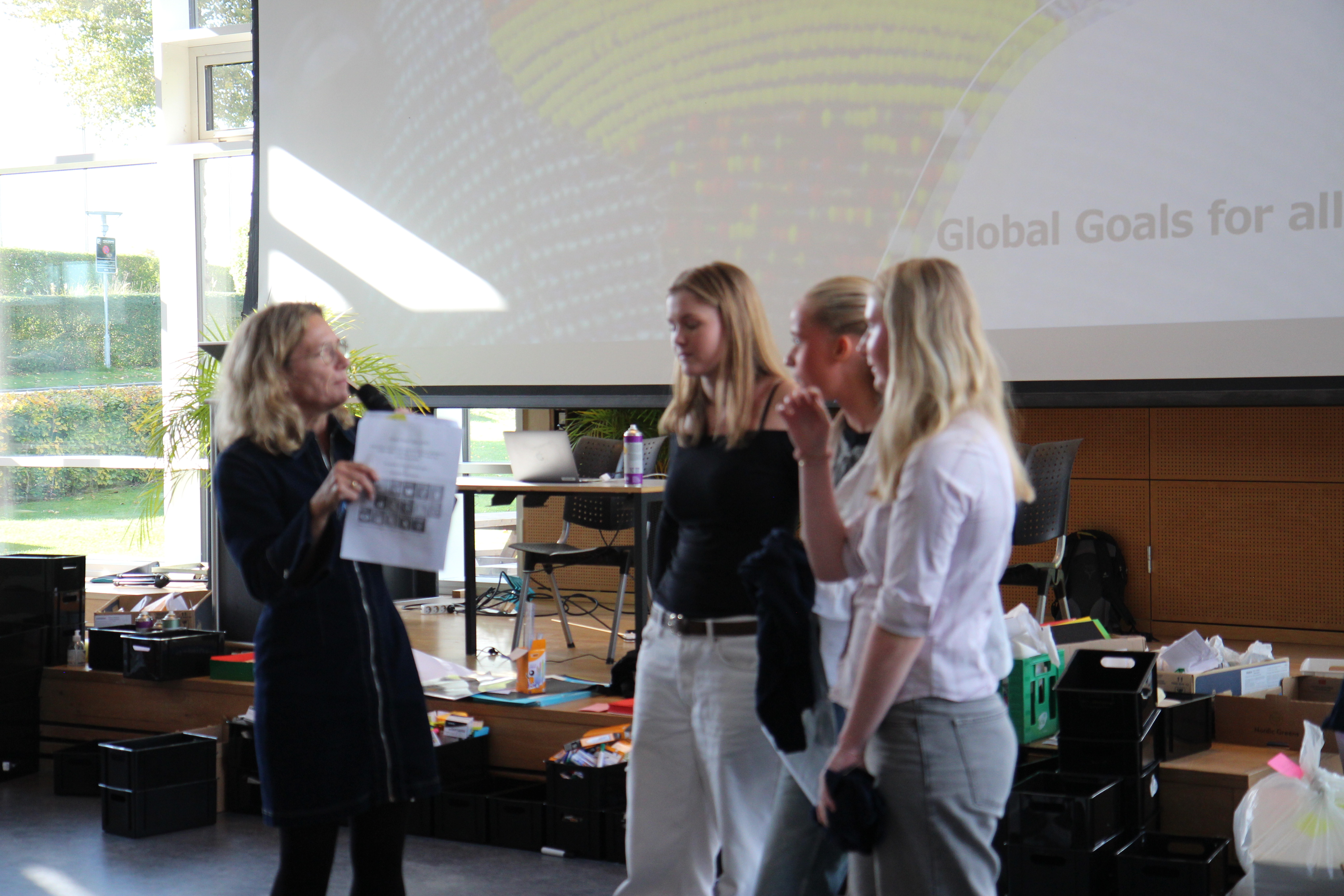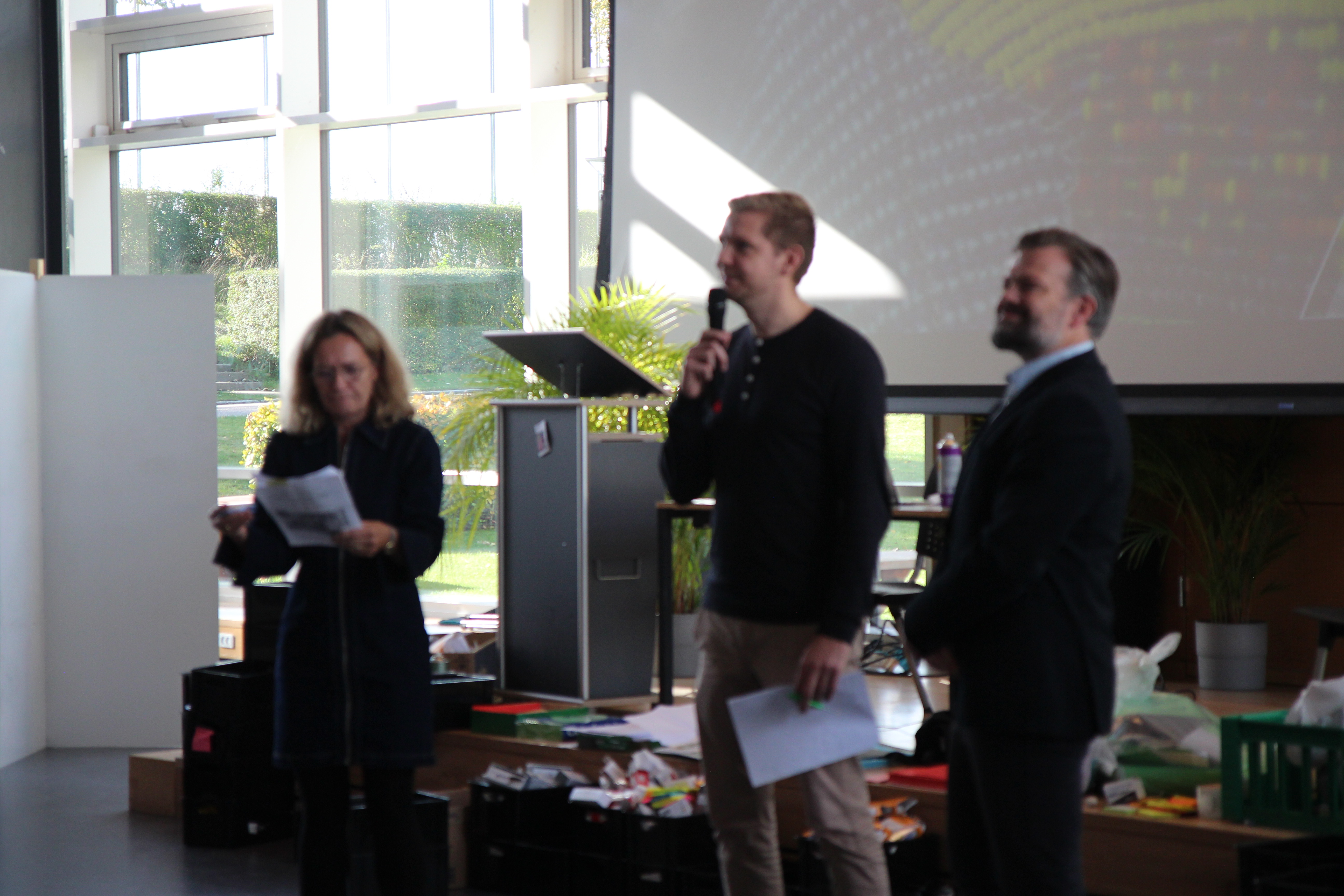Sustainability, Innovation, and Cut-and-Paste!
The past five days have looked a little different for all BG's 2nd-year students. Divided into groups, they stepped out of the familiar four walls of the classroom and instead took over the school's F-area, armed with paper, scissors, markers, and countless new, exciting ideas about how they can make the world a better place for everyone.
With the UN's Sustainable Development Goals as a guideline, the students, during this week's Global Goals project week, have tackled finding solutions to pressing challenges both locally and globally: How do we ensure clean drinking water for the entire planet's population? Can an app be developed to combat loneliness among the elderly in Denmark? What do we do about overconsumption and overproduction? These questions have been discussed from every angle, and there has been no shortage of solutions and ideas. One of the main academic points, in addition to the focused work on the UN's Global Goals during project week, is practicing working through a process.
At the end of the week, the students must present their projects to a panel of external judges. They are not only evaluated on their ideas but also on how they have approached the process, moving from idea to problem-solving and final product. Thus, the innovation process itself is scrutinized, and the students have been tasked throughout the week with reflecting on how they arrived at their solution and why they made certain choices over others—a learning that is a fundamental part of the students' overall educational journey throughout high school.
"It's a bit like a math problem: You have to show your work to explain how you arrived at the solution. It’s not enough to just have the answer—you must show how you got there. And that's something you need to be able to do in real life too," says Jakob Iversen, geography teacher and part of the teaching team for this year’s Global Goals project.

The judges have also shown strong support for the project: "In my view, a week like this is incredibly relevant for the students. It’s important in terms of creating motivation: Why do we need to learn all these things? How can they be applied outside of school? And it’s relevant for understanding how the business world and the ‘outside’ world work with solutions to global issues. It provides a great opportunity to help them decide what they want to do later on. A project like this can really facilitate that meeting," says Jøren Bardenfleth from the Foundation for Entrepreneurship.

So how is it to work so intensively on a process? According to Sofie, Sophia, and Tinus from class 2.k, who have developed a mountable water pump with a filtration system for bicycles, it has been an exciting but also challenging change from the usual school day: "It’s been great to learn about idea development and how to get a product off the ground, and really exciting to hear about others’ experiences with project development, what to prioritize, and what can go wrong," says Sophia. "It’s been fun to do something different but challenging too." "We had a constraint, which was that the product had to involve a bicycle—but once you finally come up with an idea, it’s pretty cool to see that you can actually come up with something yourself, without it being a set task from a teacher," says Sofie. Tinus adds, "The fact that there’s a competition also gives you drive."
Finally, Sofie, Sophia, and Tinus offer a piece of advice to next year’s 2nd-year students as they tackle the next Global Goals project: "Don’t shoot down any ideas and remember the legwork! Spend time on the process. It makes the final presentation easier."
The culmination of the week is the evaluation and award ceremony, where one group from each class advances to the next phase of the competition. We’re already looking forward to next year, when the F-area will once again be transformed into BG’s own innovation laboratory.